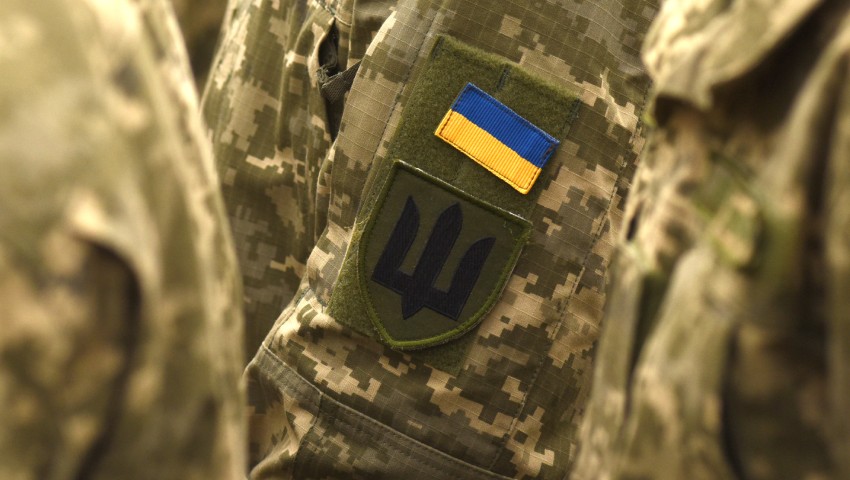Russia’s recent invasion of Ukraine has sparked debate among military experts on the future of the responsibility to protect principle, and how R2P can be misused by regimes seeking justification for political violence.
To continue reading the rest of this article, please log in.
Create free account to get unlimited news articles and more!
Already, the principle is mired in scepticism – with regimes frightened of international intervention under humanitarian pretences, while others (mainly China and Russia) accused the framework of being a smokescreen for Western unilateralism.
According to John Reid, US Air Force Officer and Staff Judge Advocate for Special Operations Command Europe, in War on the Rocks this week Putin’s justification for the invasion of Ukraine closely reflected the arguments typically employed by R2P advocates, threatening the ongoing viability of the principle to justify humanitarian intervention in the future.
Indeed, according to Reid, the suggestion from the Kremlin of the existence of a genocide in Ukraine “was the culmination of an almost decade-long Russian argument utilizing the supposed humanitarian plight of ethnic minorities in Ukraine, namely ethnic-speaking Russians, to justify military aggression”.
With humanitarian language being co-opted by regimes to justify unilateral humanitarian intervention, Putin’s actions may thus precipitate a new avalanche of “justifiable” armed conflict.
Indeed, Putin’s justification becomes even more legally murky with an invitation by the breakaway Republics in Ukraine’s east who not only corroborated Russia’s allegations of war crimes but invited military support from the Russian Federation.
“Instead, R2P emboldened Putin with a powerful lever for a domestic audience and intellectual cover on the international stage. Given the history and current events of Central and Eastern Europe, proponents of R2P should reconsider the theory as often no more than a pretext for aggression,” Reid argued.
“December of 2021, as Russian troops massed on the Ukrainian border, Putin signed a decree on humanitarian support for people living in Ukraine’s Donetsk and Lugansk regions, claiming his acts of aggression were required to protect human rights and freedoms [and] to provide humanitarian support,” declaring he took the decision “guided by the generally recognized principles and norms of international humanitarian law”.
Perhaps prior misapplication of the R2P by Western governments devalued the importance of the principle, which was developed with good intentions to overcome humanitarian disasters exacerbated by the international system.
No more was such misapplication evident that in the UN-supported NATO-led intervention in Libya, which reportedly overstepped the boundaries of humanitarian intervention by aggressively pursuing regime change.
According to Alex Bellamy in the book Global Insecurity: Futures of Global Chaos and Governance, such activities have prompted states to suggest that the R2P has enabled the West to greenlight “self-interested military interventions”.
Bellamy continues, describing how developing and non-aligned nations have shown scepticism toward such seemingly self-interested intervention by major powers in the name of humanitarian intervention. This has prompted a push by some states for the United Nations Security Council to implement further frameworks to restrict the application of the R2P, including further supervision of those coalitions undertaking humanitarian operations.
Though not only have self-interested military interventions undermined the legacy of the R2P, but also the irregularity in which the principle has been applied.
Legal experts, such as Catherine Renshaw in the Lowy Institute’s The Interpreter, raised concerns regarding the inconsistency in which the principle has been actioned to demonstrate fundamental flaws in the R2P.
Such flaws are blatantly evident in the failure of the UN Security Council to mitigate the humanitarian fallout arising from the Myanmar coup, which “unequivocally demands the application of R2P principles”, though “how could military intervention be effective in a country that is bigger than France, and that lies between China and India? Why would India and China, both sitting on the Security Council, agree to intervention when both sell arms to Myanmar’s military?”
In Reid’s analysis, years of failures within the West to legitimise the R2P, and even apply it evenly has opened pathways for misuse by authoritarian regimes.
“As Western actors chide others on misapplication of R2P, it risks the appearance of ‘R2P for me, but not for thee’. When Westerners dismissed Putin as simply ‘distort[ing]’ or ‘misus[ing]’ R2P, Putin parried such talk as smacking of Western exclusivism,” Reid concludes.
Get involved with the discussion and let us know your thoughts on Australia’s future role and position in the Indo-Pacific region and what you would like to see from Australia's political leaders in terms of partisan and bipartisan agenda setting in the comments section below, or get in touch with

 Login
Login







